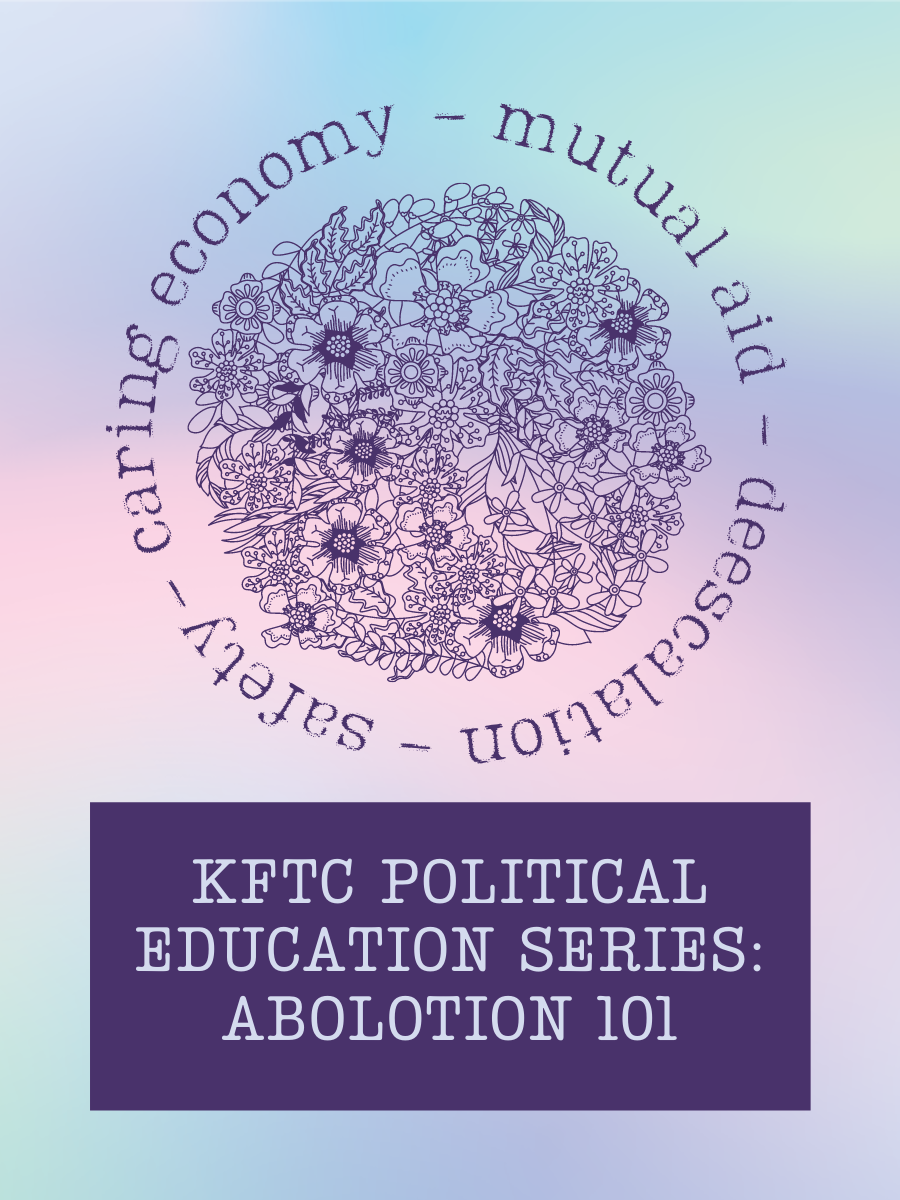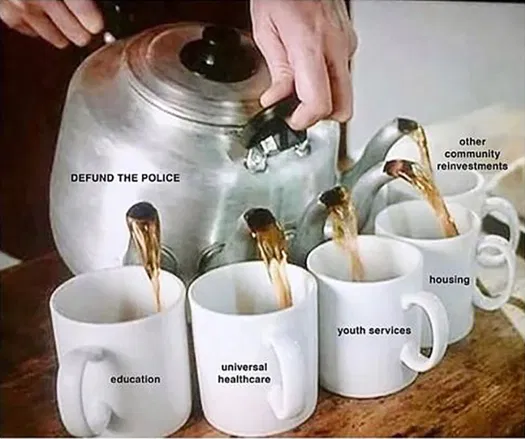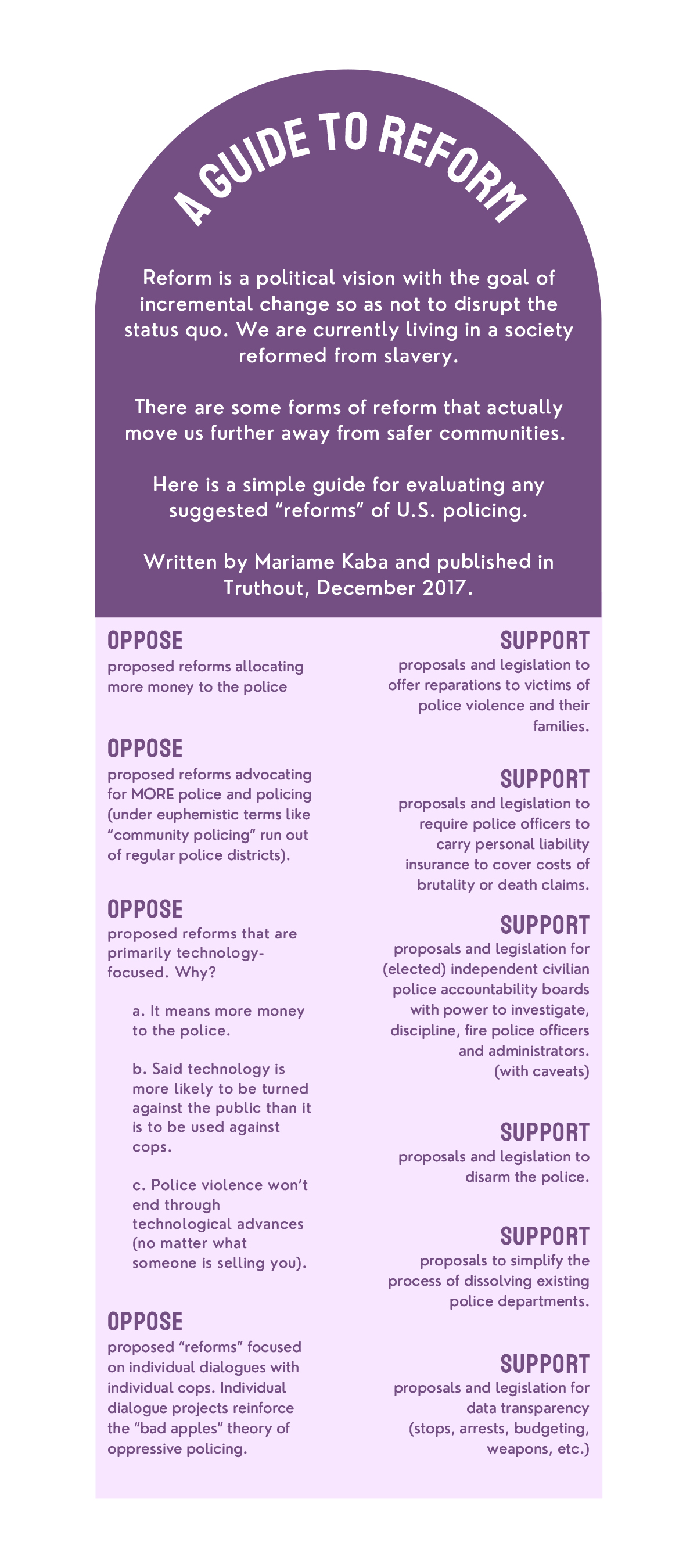Political education series applies abolitionist perspectives
 In January, KFTC launched its first ever Political Education Series: Abolition 101. Rooted in police and prison abolitionist perspectives, this political education series depends on a curriculum that cultivates our collective imagination. When we come together to reimagine seemingly concrete structures in our communities, real change can take root.
In January, KFTC launched its first ever Political Education Series: Abolition 101. Rooted in police and prison abolitionist perspectives, this political education series depends on a curriculum that cultivates our collective imagination. When we come together to reimagine seemingly concrete structures in our communities, real change can take root.
The need to create a curriculum for a political education series was recognized during the uprisings of summer 2020. In response to the killings of Breonna Taylor, George Floyd, and so many others, Kentuckians were called to take action. Amongst these calls to action, Kentuckians were also navigating new social justice movements, theories, and rally cries. A desire to understand these concepts more fully was voiced by folks across the Commonwealth. With the help of staff, members, and advisors, a Political Education library was compiled and a virtual educational series began to be developed.
The announcement of the Political Education Series garnered the interest of over one hundred Kentuckians. And since January, folks from Paducah to Pikeville have met monthly to participate in group discussions and gain a deeper understanding of abolitionist definitions and concepts. Most recently, the series hosted formerly incarcerated Kentuckians that shared their stories of overcoming the prison system in Kentucky. You can watch two of their testimonies at www.bit.ly/PoliEd-Testimony.
This curriculum intends to move us toward our vision: a Kentucky where all people can enjoy a better quality of life no matter where they live, what they look like, or how much money they have in their pockets. KFTC’s Political Education series will continue through 2021. If you’re interested in participating, please sign up at www.bit.ly/Political-Education.
Abolition 101: definition of common terms
Abolition: Prison Industrial Complex Abolition is a political vision with the goal of eliminating imprisonment, policing, and surveillance and creating lasting alternatives to punishment and imprisonment. (Definition from Critical Resistance at www.criticalresistance.org)
Racism: A system of structuring opportunity and assigning value based on the social interpretation of how one looks (which is what we call “race”), that purposely unfairly disadvantages some individuals and communities, unfairly advantages other individuals and communities. (From Dr. Camara Jones, former President of the American Public Health Association)
Prison Industrial Complex: The prison industrial complex (PIC) is a term we use to describe the overlapping interests of government and industry that use surveillance, policing, and imprisonment as solutions to economic, social, and political problems. (Definition from Critical Resistance at www.criticalresistance.org)
Policing: The definition of policing is larger than most of us think when we say “police.” Policing can take many forms, such as local cops, sheriffs, School Resource Officers, Immigration and Customs Enforcement (ICE), Customs and Border Patrol and the Dept. of Homeland Security, the CIA and the FBI, National Guard, neighborhood watch programs, plus all the technology and surveillance that all of these different types of police use.
Incarceration: When we say someone is incarcerated, most of us picture someone sitting in a jail or prison cell. However, we also want to include some other forms of incarceration: juvenile detention centers, house arrest, ICE detention, and folks living in every phase of the deportation machine (living in fear as an undocumented citizen is its own type of prison).
Defund/Divest/Invest: A political strategy with the goal of divesting/defunding (or taking money FROM) programs that no longer support us and investing in (or putting money IN) programs that will help our communities.


Recent News
Kentucky’s past legislative session showed alarming trend toward government secrecy
Churchill Downs takes more than it gives. That's why the Kentucky Derby is a no-go for me
‘We must never forget.’ Kentucky town installs markers for lynching victims.
Featured Posts
TJC Rolling Out The Vote Tour – a KFTC Reflection Essay
KFTC Voter Empowerment Contractor Reflection Essay
Voting is Power
Archives
- Home
- |
- Sitemap
- |
- Get Involved
- |
- Privacy Policy
- |
- Press
- |
- About
- |
- Bill Tracker
- |
- Contact
- |
- Links
- |
- RSS

